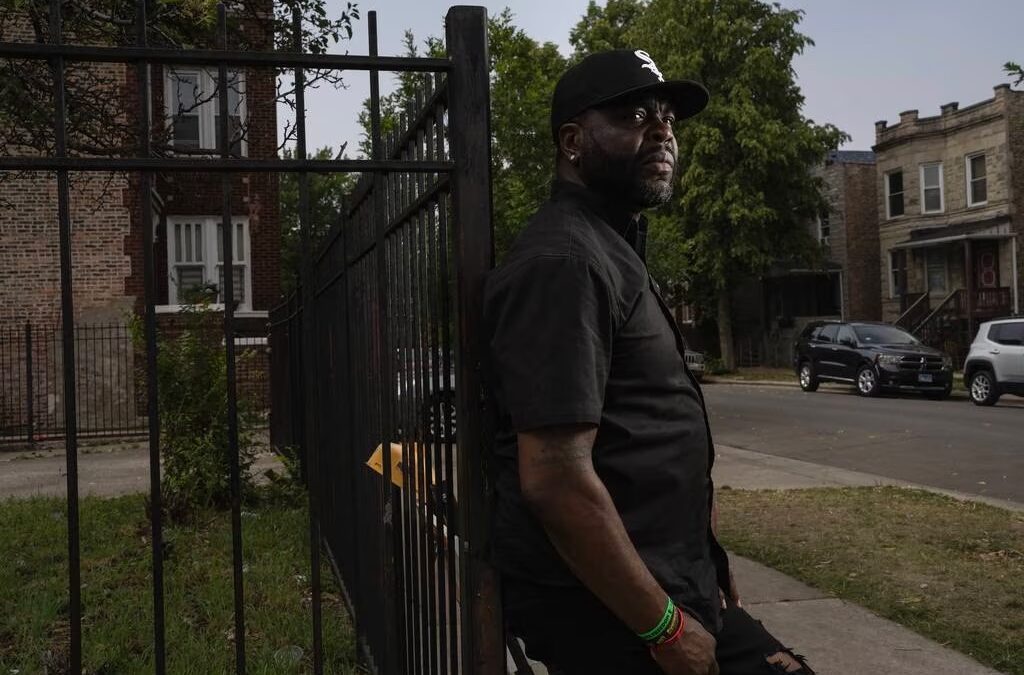On Sept. 21, 2004, I got into an argument with the sister of an acquaintance of mine. She told him about it, things escalated, guns came out and he shot me seven times, leaving me paralyzed from the neck down.
A lot of the gun violence in Chicago occurs between people who know each other, who live near each other, who may have gone to school together and who are facing similar everyday challenges. Issues that should be settled with words or, at most, fists, are too often settled with guns, and the consequences are devastating.
I’m a Black man who grew up in a two-parent home in North Lawndale on Chicago’s West Side. My father worked the night shift at the Zenith factory. I rarely saw him for dinner. My mother worked for a local church.
My two older brothers were out of the house by the time I was 14. Like a lot of young guys, I turned to the streets for companionship, money and, eventually, for safety. I glorified the local drug dealers. They had everything: cars, women, money, clothes.
In high school, I started selling weed. I was living a double life — school by day and hustling at night. I caught my first criminal case at 17, a drug charge. I got probation, and I managed to finish high school.
I enrolled at a community college in DeKalb, but I still needed money, so I got back into drug dealing. Eventually I dropped out and came back to Chicago. Right around then, I lost one of my closest friends to gun violence. I cried for days.
At this point, my father had passed, so it was just me and mom. She was tough on me, but she couldn’t stop me from making bad choices. My older brothers made much better choices. One became an architect. The other joined the Air Force and later became a firefighter. I think my parents were more engaged with them growing up, but by the time I came along, maybe they were tired. For the most part, I was on my own. The streets were my family.
In my early 20s, I was still hustling, but I was sick of the streets. I had three kids from two women, but I was not present in their lives. A local pastor got me into a job training program, and I was about to start a construction job when I got into that argument that changed my life.
After the shooting, I was in a wheelchair for a while but, with a lot of painful rehabilitation, I graduated to a walker and then a cane. I recovered most of my mobility above the knee. Eventually I accepted my limp.
For the next few years, I worked when I could. I ran a sports program for kids. I stayed involved with the church. I was still struggling, and at one point, I found myself homeless.
A group of formerly incarcerated men took me in, and eventually that same pastor came to my rescue. He put me to work coaching young men in the community to avoid the kind of activities that had shaped my early life. I was honest with them. They listened to me because I had walked in their shoes and understood their struggles.
Today, I’m an outreach leader working for a community violence prevention organization. I recruit into our program young people at high risk of shooting or being shot. I offer them a bridge to a safer life, a shoulder to lean on and someone they can trust. We help them put down their guns and learn to think twice before giving into their emotions. We help them return to school, learn a trade and get a job.
Our organization also tracks shootings and rivalries among street factions in North Lawndale and helps mediate disputes and negotiate nonaggression agreements. We visit gun violence victims and their families in the hospital and in their homes. By sharing our stories, we try to give them comfort and faith that there is a future beyond gun violence.
Does violence prevention work? Absolutely. For the guys in our program, it’s the difference between life and death. It isn’t perfect. We lose some guys. But police can’t do what we do, and we definitely don’t do what they do. We each have our roles.
It took me a lot of years to face up to my insecurities and for my emotional scars to heal. But today, at 40, I have a 4-year-old son, a home that I own, a job that I love and a positive outlook on life. I am about to earn a college degree in urban studies.
I am no longer part of the problem. I am part of the solution.
Jason Little is an outreach leader with the violence prevention nonprofit Chicago CRED, serving the West Side of Chicago.
